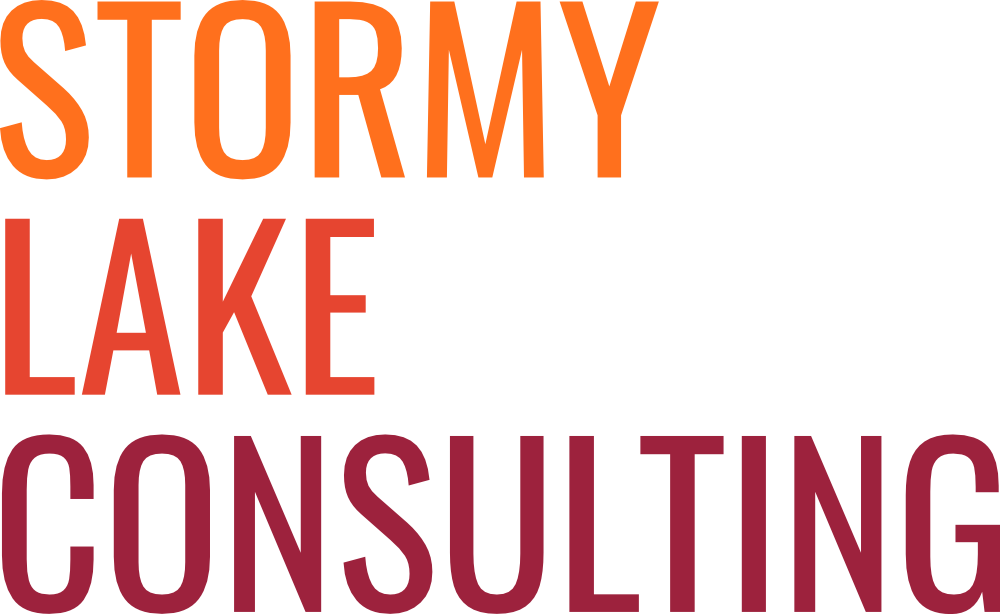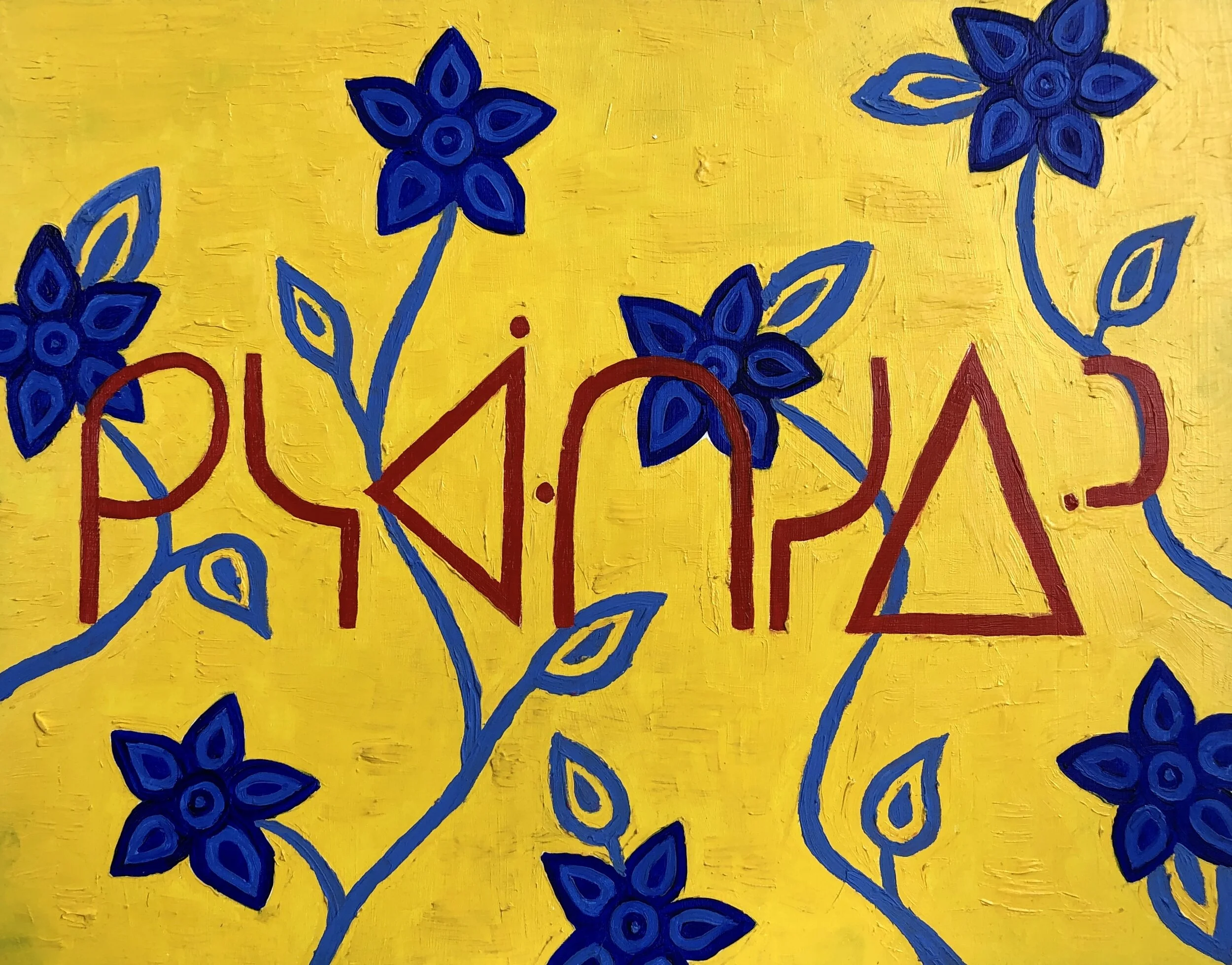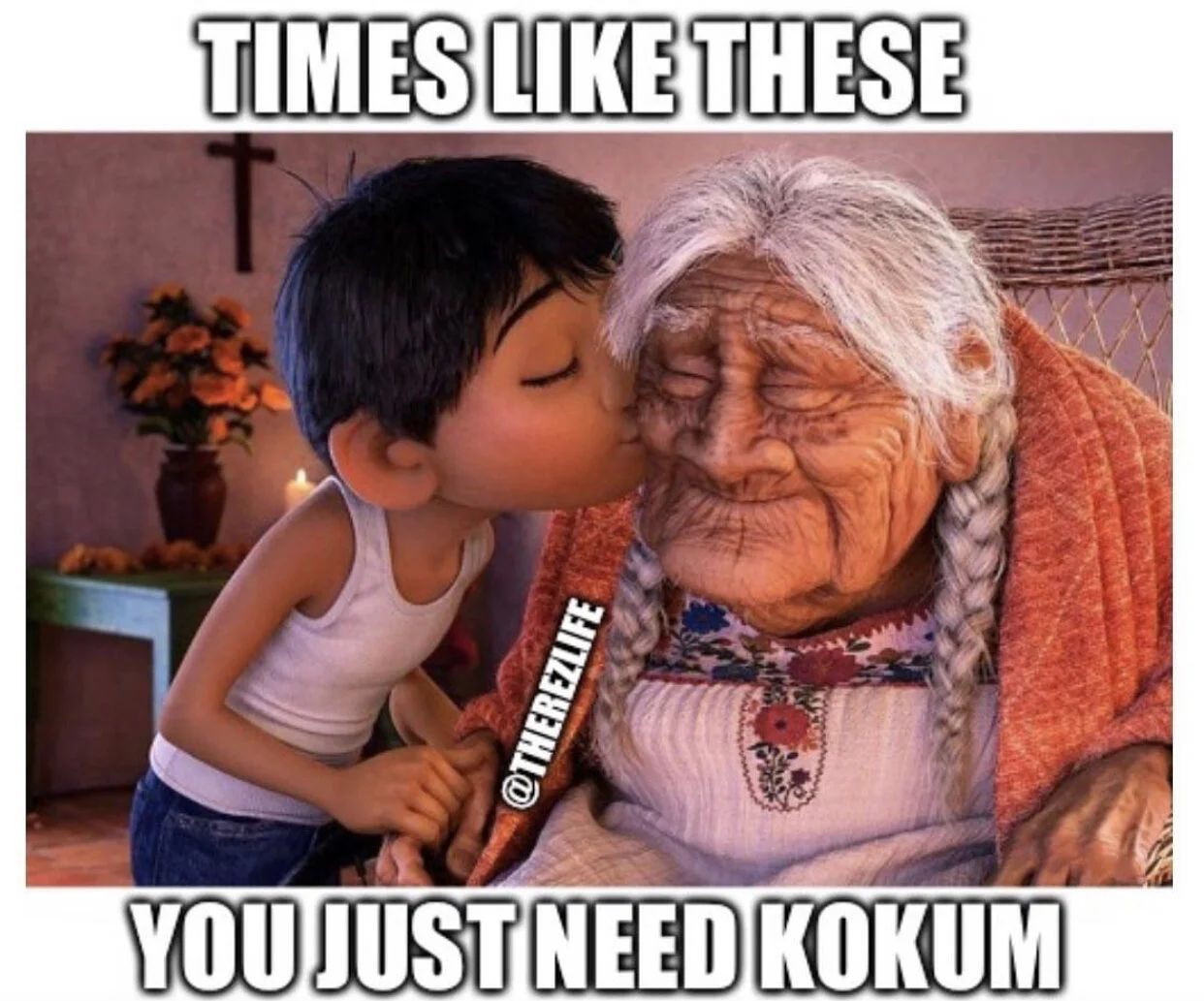The Weekly Update Celebrating National Indigenous People’s Day
This week we pass the pen to our newest Stormy Lake team member, Kayla.
Tansi natohtamakewa pêpîsis iskwew nitsiyihkâson. Wâpaskâw ochi niya.
Hello readers, my name is baby woman, my Cree name gifted from nôkhum (my grandmother) and I am from Wabasca, which translates to white meadow or grass. I am from Treaty 8 territory, which is where my ancestors on my maternal side come from. I self-identify as a nehiyaw iskwew, a Cree woman, however I do acknowledge my mixed blood too. My mother is Cree and has Métis ancestry, and my father is Euro-Canadian, of English and Scottish descent. My English name is Kayla Simpson-Bellerose, and my relations are from Big Stone Cree Nation, and Sawridge First Nation in Northern Alberta. I am grateful for the opportunity to share insightful knowledge on this newsletter in celebration of National Indigenous People’s Day this weekend on June 21!
In Indigenous social customs, our foundation for creating a relationship is to ask how we are related first. We do this by asking, “where are you from?” Or “who’s your mom? Who’s your kokum?” We build a relationship by understanding where each other’s relations are from, and this is why I introduce myself in this way.
As Indigenous peoples, we introduce ourselves by connecting to the territory/land where we are from because it is the foundation of our identity. We always acknowledge the land that has sustained our families for generations, and we acknowledge our maternal relations because the women in our families give us life, just like the land.
Photos taken by myself in Kainai First Nations near the Belly River, in Treaty 7 territory. Photography is a medium I use that helps me connect to the land as an urban Indigenous artist, as I can learn about new plants I see on the land by taking pictures, then later asking Elders for their knowledge of local plants and medicines, and I give an offering in exchange for their wisdom. This is my modern process of learning more about the land I live on.
At Stormy Lake Consulting, we are beginning our work to identify our unique and individual relationships to the land by creating our own personal land acknowledgements. The month of June is National Indigenous Peoples History Month, so we would like to take the time to share our land acknowledgement in recognition of the original caretakers of these lands:
Stormy Lake Consulting acknowledges that we work, live, love, and sustain ourselves on the traditional territories of the people of the Treaty 7 region in Southern Alberta, which includes the Blackfoot Confederacy (comprising the Siksika, Piikani, Kainai First Nations), as well as the Tsuu’Tina First Nation, and the Stoney Nakoda (including the Chiniki, Bearspaw, and Wesley First Nations). The City of Calgary is also home to Métis Nation of Alberta Region III. We are situated on land adjacent to where the Bow River meets the Elbow River, and the traditional Blackfoot name of this place is “Moh’kins’tsis”, which we now call the City of Calgary. As visitors on this land, we give plentiful thanks for being able to live and sustain our families in this beautiful place and share gratitude for all our relationships with Treaty 7 peoples.
Many people today want to know what is a land acknowledgement and why is it important.
Acknowledging the land and the people of that land is a foundational approach to building a relationship with the place you are visiting or living. Creating a relationship with the land is unique to everyone, but the foundation of respect is universal. We must have respect for the land and the people of the land that nourishes us.
Piikani Elder, Reg Crowshoe (Indigenous Knowedge Keeper at the University of Calgary) wonderfully explains the importance of territorial acknowledgements in this short video.
In Indigenous cultures, the land is seen as a relative, as family. We are always in relationship with the land because it sustains our lives. As human beings we want to ensure we reciprocate gifts back to the land for all that it gives to us. To have reciprocal relationships with all our relations.
In honour of National Indigenous People’s Day, we choose to highlight kohkom (grandmother) wisdom. Since I am writing this from my own lens being a Nehiyaw iskwew, I ground my words with teachings from The Kohkom Kisewatisiwin Society – a group of Indigenous grandmothers in Edmonton who are helping preserve First Nations and Métis culture and traditions.
During this societal shift of being more aware of the inequalities in the systems that govern us, recognizing the Black Lives Matter Movement, and the collective realization that we need to be more communal to overcome the COVID pandemic, it seems fitting to share some kohkom wisdom about Kindness.
Kisewatisiwin, oil painting by artist BB Iskwew, 2018
“The Cree word Kisewatisiwin cannot be easily interpreted in English. Some may say that the simple translation is “kindness” but there is more to the way of life implied by kisewatsiwin that the English word kindness does not reveal.
Kisewatisiwin is a principle of living in a good way. It implies a personal commitment to humility, prayer, and loving kindness towards all things.”
Kohkom Kisewatisiwin Society
Collectively we need to spread more kindness during these times. Recognize the loving power of grandmothers, and let their wisdom guide you to be more kind as we shift towards a more inclusive world. Sometimes we just need that kokum love!
This weekend is summer solstice, National Indigenous People’s Day, and Father’s Day! Take some time this weekend to spread kisewatsisiwin – kindness!
As summer emerges, the land is kind to us as traditional foods grow for harvest and picking. This season is a time to give thanks to the land for the plentifulness Mother Earth provides and is a time to prepare for the hard winter ahead of us.
Indigenous peoples always had creative ways of preserving food, primarily by smoking and drying our traditional foods. Here is a Kohkom’s Traditional Pemmican Recipe to perhaps try with the family after some berry picking:
For too long, western and Indigenous knowledge has been separated. The Stormy Lake team believes in the importance of learning from multiple perspectives to have a better understanding of the world. With this, we highlight the philosophy of Two-Eyed Seeing shared by Mik’maw Elder, Albert Marshall.
“To learn to see from your one eye with the best or the strengths in the Indigenous knowledges and ways of knowing… and learn to see from your other eye with the best or the strengths in the mainstream (Western) knowledges and ways of knowing… but most importantly, learn to see with both of these eyes together, for the benefit of all.”
Indigenous scholar Rebecca Thomas explains Two Eyed Seeing beautifully at a 2016 TedX Talk.
Learning from Indigenous perspectives is imperative to building a healthier future for all of us sharing these lands. There are many teachings and stories that we can learn from, acknowledging the wisdom and strength of Indigenous knowledge systems. It is time to collaborate and learn from each other in a good way.
We leave you a quote by Indigenous scholar and botanist, Robin Wall Kimmerer, from her book Braiding Sweetgrass:
“Know the ways of the ones who take care of you, so that you may take care of them. Introduce yourself. Be accountable as the one who comes asking for life. Ask permission before taking. Abide by the answer. Never take the first. Never take the last. Take only what you need. Talk only that which is given. Never take more than half. Leave some for others. Harvest in a way that minimizes harm. Use it respectfully. Never waste was you have taken. Share. Give thanks for what you have been given. Give a gift, in reciprocity for what you have taken. Sustain the ones who sustain you and the earth will last forever.”
May these words plant seeds in your minds and hearts to spread kindness with all of your relations. Happy blooming this weekend!
Hiy Hiy! Thank you!
Kayla





